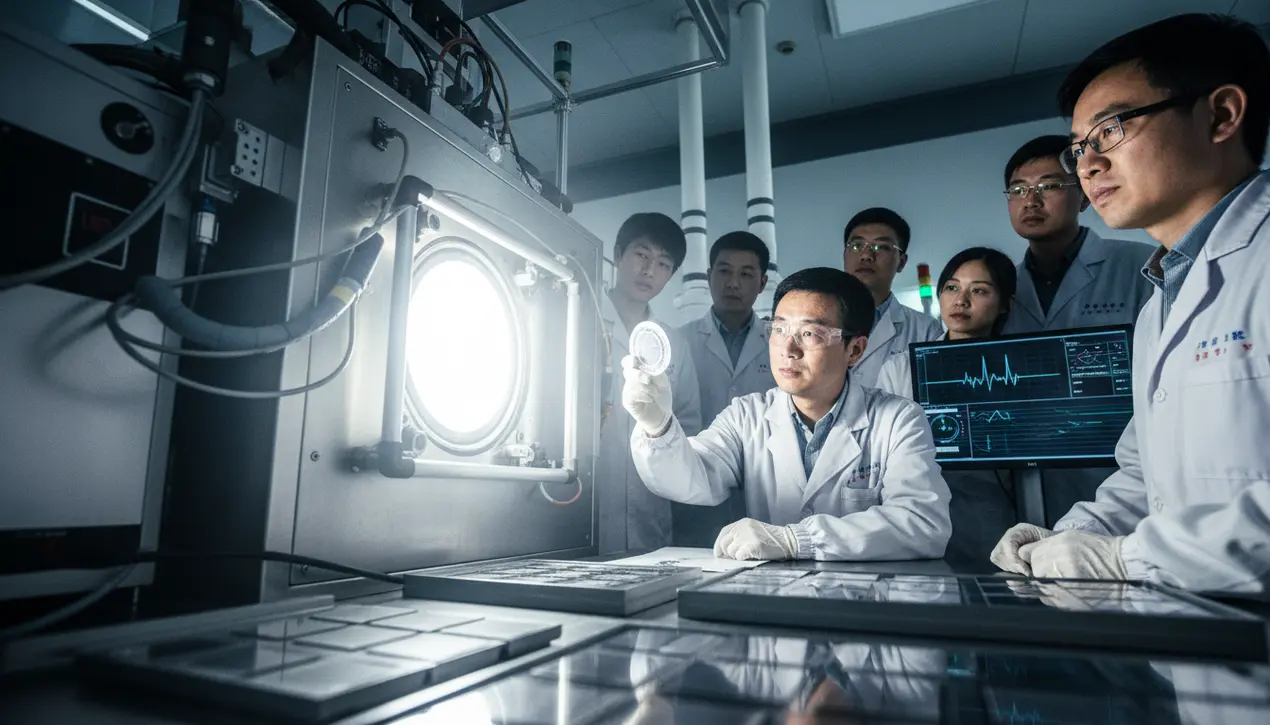
SciencephysicsMaterials Science
Chinese scientists develop ultra-fast capacitor production method.
KE
Kevin White
4 hours ago7 min read2 comments
In a development that feels ripped from the pages of a sci-fi novel, Chinese scientists have fundamentally re-engineered the production of dielectric energy storage capacitors, slashing the manufacturing time for critical components from a sluggish several minutes to a blistering single second. This isn't just an incremental improvement; it's a quantum leap in materials science, achieved through a revolutionary 'flash annealing' technique that subjects materials to heating and cooling cycles at an astonishing rate of 1,000 degrees Celsius per second.To put that in perspective, conventional methods for synthesizing the delicate crystal films on silicon wafers—the heart of these components—can dawdle for up to an hour, a veritable eternity in the high-stakes race for technological supremacy. The implications are staggering, extending far beyond the laboratory bench.This breakthrough paves the way for scalable, temperature-stable energy storage solutions that are poised to become the linchpin for the next generation of hybrid electric vehicles, where rapid power discharge is critical for acceleration, as well as for power-hungry applications like advanced radar systems and the high-power lasers used in everything from manufacturing to defense. The secret sauce lies in the precision of this ultrafast thermal processing, which allows for the creation of superior microstructures in the ceramic films, enhancing their energy density and reliability without the defects often introduced by slower, more conventional sintering processes.Think of it as the difference between slowly boiling an egg and using a precision laser to cook it perfectly in a flash—the latter offers unparalleled control and a superior final product. This advancement arrives at a pivotal moment in the global tech landscape, where the demand for efficient, compact, and powerful energy storage is a primary bottleneck for innovation.From the miniaturization of consumer electronics to the deployment of grid-scale renewable energy buffers, the humble capacitor has been a limiting factor. The team's work, likely emanating from a powerhouse institution like Tsinghua University or the Chinese Academy of Sciences, doesn't just solve a manufacturing problem; it opens a new frontier in biotech and medical device design, where such capacitors could power implantable sensors or targeted drug delivery systems requiring immense, instantaneous energy bursts.While the press release touts the speed, the real story for the scientifically-minded is the elegance of the materials engineering. By mastering such extreme thermal dynamics, the researchers have demonstrated a pathway to fabricate complex functional ceramics with a level of efficiency previously deemed impossible, challenging long-held assumptions in condensed matter physics.The road from laboratory prototype to mass production is, of course, fraught with challenges—scaling up the flash annealing process for industrial-level throughput while maintaining yield and consistency will be the next great hurdle. Yet, the potential is undeniable.This isn't merely a faster way to make a component; it's a foundational technology that could accelerate the entire ecosystem of high-power electronics, giving Chinese tech firms a significant edge in the global market and forcing competitors in the United States, Japan, and South Korea to re-evaluate their own R&D roadmaps. The future of energy storage is not just about holding more charge; it's about building it faster, smarter, and more reliably, and with this breakthrough, that future just got a whole lot closer.
#featured
#dielectric capacitors
#flash annealing
#energy storage
#electric vehicles
#laser weapons
#materials science
#Chinese research
Stay Informed. Act Smarter.
Get weekly highlights, major headlines, and expert insights — then put your knowledge to work in our live prediction markets.
Related News
Comments
Loading comments...
© 2025 Outpoll Service LTD. All rights reserved.